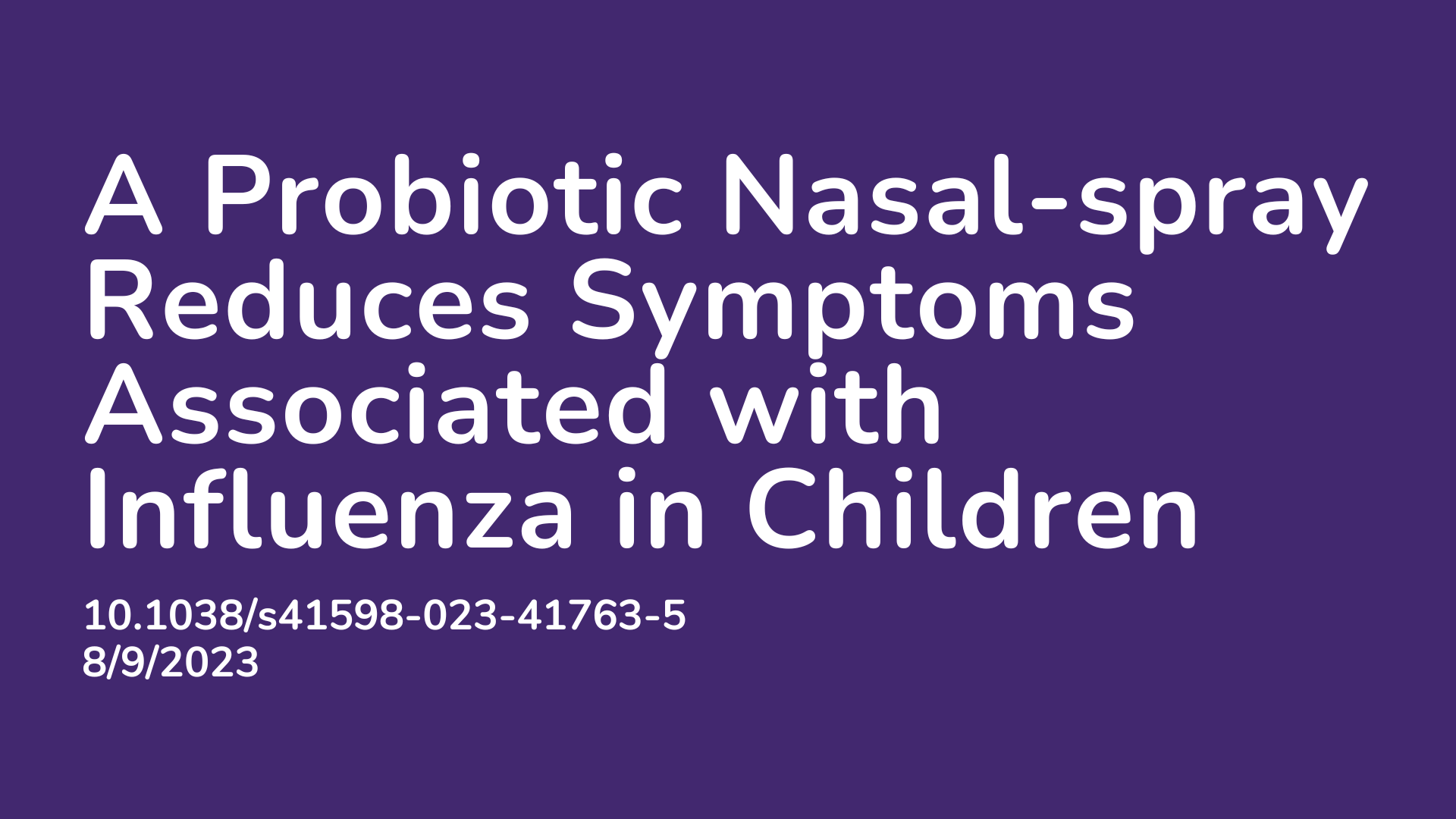Summary:
Influenza A and B, which cause Acute Respiratory Tract Infections (ARTIs) are the primary culprits behind seasonal flu epidemics and commonly affect young children and infants. These viruses can often lead to severe complications, or death in developing countries. Vaccination and anti-viral treatments pose challenges for young children, which emphasizes the importance of prevention and other treatment options. Probiotics, like Lactobacillus rhamnosus GG and others, have shown potential in supporting ARTI treatment by supoporting the immune system and reducing systemic inflammation. Nasal-sprayed Bacillus probiotics have also proven effective against respiratory viruses, which may mean they have potential for influenza treatment. This paper is a double-blind, randomized, and controlled clinical trial assessing the efficacy of a nasal-spray probiotic (LiveSpo Navax) in pediatric influenza patients. The nasal-spray contains 5 billion Bacillus subtilis and B. clausii. The findings revealed that the nasal-spray resulted in a notable reduction in recovery time and a 58% reduction in symptoms of ARTIs. Pro-inflammatory cytokines (markers of inflammation) also reduced with the treatment. In summary, the administration of a probiotic nasal-spray proved to be a rapid and efficient treatment for influenza induced ARTIs.
Abstract:
Influenza virus is a main cause of acute respiratory tract infections (ARTIs) in children. This is the first double-blind, randomized, and controlled clinical trial examining the efficacy of nasal-spraying probiotic LiveSpo Navax, which contains 5 billion of Bacillus subtilis and B. clausii spores in 5 mL, in supporting treatment of influenza viral infection in pediatric patients. We found that the nasal-spraying Bacillus spores significantly shortened the recovery period and overall treatment by 2 days and increased treatment effectiveness by 58% in resolving all ARTIs’ symptoms. At day 2, the concentrations of influenza virus and co-infected bacteria were reduced by 417 and 1152 folds. Additionally, the levels of pro-inflammatory cytokines IL-8, TNF-α, and IL-6 in nasopharyngeal samples were reduced by 1.1, 3.7, and 53.9 folds, respectively. Compared to the standard control group, treatment regimen with LiveSpo Navax demonstrated significantly greater effectiveness, resulting in 26-fold reduction in viral load, 65-fold reduction in bacterial concentration, and 1.1–9.5-fold decrease in cytokine levels. Overall, nasal-spraying Bacillus spores can support the symptomatic treatment of influenza virus-induced ARTIs quickly, efficiently and could be used as a cost-effective supportive treatment for respiratory viral infection in general.
Article Publication Date: 8/9/2023
DOI: 10.1038/s41598-023-41763-5



